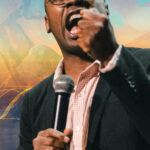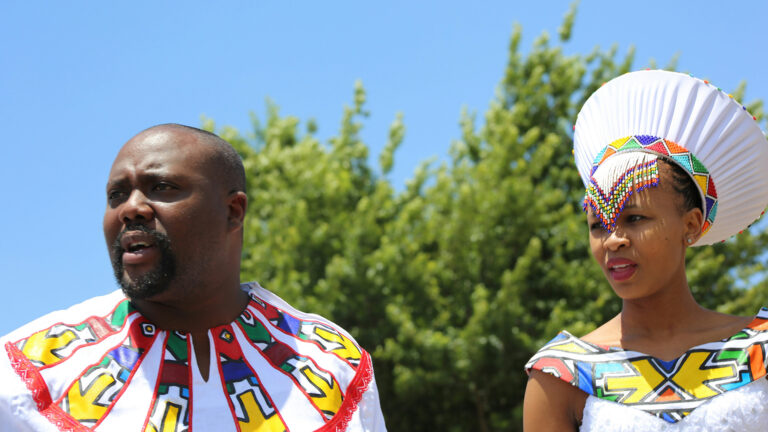Theological study is an undervalued practice among many African pastors. Its worth in the life and upbuilding of the church is greatly understated. Many do not see the need for theological training in their spiritual oversight. The general belief is that if you are called and full of God’s Spirit, then you need not study. I, myself, was of this persuasion. Indeed, was an avowed proponent of this view! But within my first term at Bible College, I realised how wrong I had been. For as I learned, I was confronted by the many errors I had absorbed over my five years of ministry prior to theological training.
Untrained church leadership is dangerous
Doctrines like “you are gods and can speak things to existence,” were supreme in my thinking. I believed that because I had the Holy Spirit, I did not need theological training. Nor did I think to prepare messages and sermons. But, in God’s grace, when I went to college I saw the error of my ways. To my horror, I was being confronted repeatedly with the many unbiblical and therefore unhelpful things I had said. Untrained church leadership is dangerous.
Pastors Can Be Theologians (And Vice-Versa)
Many churches in Africa, and around the world, are prone to making this great mistake: We separate the scholar (or theologian) from the pastor. This results in churches being subjected to great errors, like those I taught before I went to college for training. But both the Bible and church history reveal that this is a modern way of doing ministry.
Owen Strachan points this out in his introduction to The Pastor as Scholar and the Scholar as Pastor. “Unlike our more recent history, when pastors were urged by some to busy themselves with the pragmatic matters of everyday ministry and some scholars focused less on the church and more on high-level academic questions, pastors and scholars throughout the larger span of church history have blended these roles. Pastors worked out of a burden to bless their people with biblical theology even as scholars laboured to nourish, strengthen, and captivate the church through their scholarship.”
We separate the theologian from the pastor, which results in churches being subjected to great errors
He goes on to note that the two practices fulfil the same purpose and “were filled by the same person.” Therefore pastors do the work of theologians: they feed the church doctrinal truths. But this is an aspect that the African church misses out when we separate the two offices or roles.
The Legacy of Great Pastor-Theologians
History bears witness that our theological positions on the Trinity, Jesus Christ (as both God and man), the Holy Spirit as God and many other doctrines are the result of second and third century pastor-theologians. These men engaged in serious theological discussions and debates. They formed and met as councils to clearly establish biblical truth and therefore protect the church from damaging and dangerous heresies.
Even the Reformation was in some ways a result of pastor-theologians who were concerned with teaching their people biblical truths. As Owen Strachan writes, “The pastor was a scholar, the scholar was a pastor. This is particularly true of the Reformed tradition, the guild whose trans-denominational movement continues to grow today. In Augustine, Luther, Calvin, many Puritans, Edwards, Spurgeon, Lloyd-Jones, and many more, we find men who loved the church and excelled as theologians.”
Scholars In The Bible
Today, especially in Africa, there’s a need for the church to turn back to this way of doing ministry. For the pastor is both a theologian and a shepherd. This is how God has designed ministry. As Paul said to Titus, an elder “must hold firm to the trustworthy word as taught, so that he may be able to give instruction in sound doctrine and also to rebuke those who contradict it” (Titus 1:9). Paul was well respected for his knowledge (Acts 26:24). It is also well known that Luke was a doctor. Though not a theological doctor he would nevertheless have been classified as a scholar in his field of study.
The pastor is both a theologian and a shepherd. This is how God has designed ministry
But What About the ‘Uneducated’ Disciples?
But some will object that Jesus’ twelve disciples were uneducated. Therefore, they say, there is no need to study theology to be a pastor. But those men sat under the teaching, training and discipleship of the Lord Jesus Christ. For three years. They might have not been educated according to the standards of our world, then or now, but they were well trained in the things of the kingdom of God. They were in fact theologically trained. Otherwise Jesus would not have been able to commission them to “teach” other disciples (Matthew 28:20). Today this role of teaching and training people rests with the pastor. But how can the pastor train others if he himself is untrained?
Pastors Must Train their People
Part of pastoral oversight is seeing that the church is theologically sound. As Paul wrote to the Ephesians: Christ gave apostles, prophets, evangelists, shepherds and teachers to equip believers for the work of ministry, “for the building up of the body of Christ, until we all attain to the unity of the faith and knowledge of the Son of God, to mature manhood, to the measure of the status of the fullness of Christ” (Ephesians 4:11-13).
How can the pastor train others if he himself is untrained?
Roger Weil, in Foundations of the Christian Faith, comments in this passage, “Christians who are ill taught are unstable and will inevitably be blown about by every wind of teaching. If we do not teach properly we will have weak, ignorant and carnal churches, easily confused by the cults and led astray by the devil.” It is our responsibility as pastors to train our people. We must aim to stabilise them in their faith, to moor them. Then they will be able to stand against the confusing, deceitful and unbiblical waves rocking the church.
You Are What You Eat
Our neglect of theological studies as African pastors puts the future of Christ’s church in peril. It is one of the reasons many people are drawn to the prosperity gospel and word of faith movements. For they have not been trained or equipped to recognise these lies. Ironically, we might complain about the prosperity gospel yet go on to interpret the Bible similarly because we are not theologically trained. This is because we can only feed our people what we ourselves eat.
If we are fed on the prosperity gospel, through the televangelists and popular preachers, this is what we will believe.
If we are fed on the prosperity gospel, through the televangelists and popular preachers, this is what we will believe. As this happens we will be unable to warn our people against error. For we ourselves will be unaware. Biblical interpretation is a skill and habit shaped by the interpreters we listen to. For many of us the only interpretative matrix we know is informed by the prosperity gospel. Therefore, even though we speak against it, this may still be the only thing we see in the Bible.
Pay Attention to Yourself, And Your Flock
There is a need to divorce our interpretation grid from the prosperity gospel interpretation grid if we are going to protect and faithfully present God’s truth. As Paul said to Timothy, “Pay attention to yourself and to the flock, in which the Holy Spirit has made you overseers” (Acts 20:28).
The best way to do this is by watching over our teachings and making sure we are trained to rightly handle the word of God. As Paul again said to Timothy, “Keep close watch over yourself and the teaching. Persist in this, for by doing so you will save both yourself and your hearers” (1 Timothy 4:16). And “do your best to present yourself to God as one approved, a worker who has no need to be ashamed, rightly handling the word of truth” (2 Timothy 2:15).
Sufficiently Trained to Train Others
Rightly handling the word of truth will make us cautious as we interpret the Bible. The Apostle Paul saw pastors as bearing a great responsibility. Therefore, let us remember that the Bible and church history show a unity between the work of pastors and that of theologians. Who then are we to separate them? We also need to acknowledge that it is the pastor’s responsibility to protect the church from false doctrine. To do this they must be trained and equipped sufficiently to train and equip others. They must be simultaneously gripped by God’s truth and the guardians of it.














